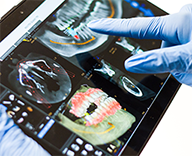
Healthcare

Hospital

Physician

Dental

Nursing and Residential

Diagnostic
Overview Of The Healthcare Industry
This industry specializes in providing goods and or services to treat individuals with curative conditions, rehabilitation, prevention, and in some instances, palliative care. The healthcare system is built on many sub-sectors and professionals to meet the needs of individuals and populations.
Healthcare predicates itself on diagnosing, treating and preventing diseases, illnesses, injuries, and mental impairments in the human population. The divisions of this include but are not limited to medicine, nursing, and pharmacy professionals.
Key Areas In Healthcare
Hospital
One of the most familiar, a hospital employs workers who offer a wide variety of health care services to treat patients, including physicians, nurses, therapists, psychiatrists to treat curative conditions, assist in rehabilitation illness prevention and more.
Physician
This sector is comprised of establishments of physicians on a smaller scale engaged in a private or group practice for general or specialized treatments or medications.
Dental
This is owned and run by one or multiple dental professionals, much in the same way that a physician's office is run when it comes to the flexibility of private or group practice, but it only handles dental services and treatments for patients.
Nursing and Residential
A sector where nurses, psychiatrists, and aides provide around-the-clock care to meet patients’ needs. Examples of these include nursing homes and rehabilitation centres.
Diagnostic
These are centres where lab tests and other diagnostic procedures are used to check if a person is healthy, either using blood, urine, or body tissue. Healthcare professionals that fall into this area include radiologists and medical assistants.
Challenges In Healthcare
Cybersecurity
As meetings with physicians have become more digital and the records of clients have followed suit, the risk of this private information being stolen has only increased. While some medical providers have a solid layer of protection for these records, there is always room for improvement.
Patient Experience
As the experience has added a virtual aspect, there need to be improvements in how patients are processed, but this change is not limited to just virtual appointments. Patients want an experience where they can resolve most issues, questions, or concerns that they have immediately from booking an appointment, payment, insurance status, and recommendations on the current state of their health.
Patient Information Transfer
When patients switch insurance plans or healthcare providers, some rely on patients self-reporting to reconstruct their records, which can be quite problematic. This means not all the information is transferred properly, so the accurate insights of this data would be missed, which can affect a patient’s treatment.
How Technology Can Solve These Challenges
When it comes to cybersecurity, technology can provide robust systems to keep patient information secure whether it be through blockchain, firewalls, network segmentation and more. For the patient experience, there can always be modifications to the technology you have in place, or creating a client-facing app can work wonders for the patient experience. Although complex, information transfer can also be solved by streamlining the transfer of information between departments and institutions through secure applications and file transfers.
How LT3 ATG Can Implement The Tech You Need
At LT3 ATG, we offer various methods of cybersecurity to tackle even the most complex healthcare systems. For your patients, their patient experience does not have to be a challenge either. We have developed numerous applications and websites that have made our clients' lives that much easier. Although information transfer is complex, being able to provide confidential information between different entities, we can help broker that partnership and install technology to make that partnership exceed your expectations. Want to kickstart your healthcare processes? Book your consultation today!
Healthcare
Related Articles
Fun Facts
TBD
Related Projects
Check out our other projects →LT3 ATG
Ready to get started?
Building your vision starts with a conversation. We're always happy to chat.










